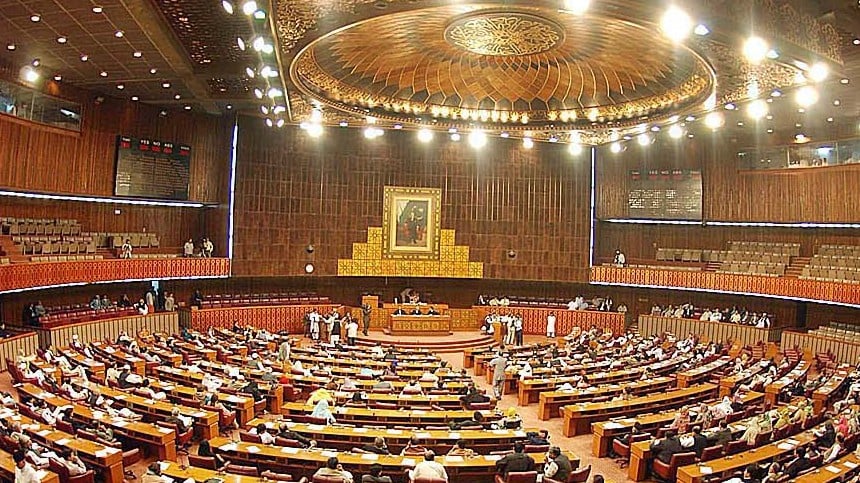
The steady decline in political discourse on our television screens has become a painful spectacle. Politicians from both the ruling and opposition benches routinely resort to unseemly language, launching vitriolic attacks on their counterparts rather than focusing on the persistent issues that affect the people they represent. Such conduct not only presents poorly on the individuals involved but also tarnishes the image of public office, leaving citizens disillusioned. In a nation that looks to its leaders for guidance and vision, this abandonment of decorum is both disturbing and disheartening.
Politics is often described as the art of negotiation and strategic compromise. However, it seems that in Pakistan, politics has devolved into a relentless contest of personal animosity and verbal aggression. This disregard for parliamentary norms is a direct affront to the principles of democracy and the responsibilities that come with public service.
Since the inception of Pakistan, citizens have yearned for a political leadership committed to the nation's progress. Instead, a steady regression is witnessed in vital sectors such as education, health and economy, all fraught by a culture of self-interest and ineptitude.
Political leaders must recognise that their conduct in public forums, press conferences, and even the hallowed halls of parliament is watched closely by millions. They hold a platform that can inspire, educate and unite. Yet, the language they choose often promotes division, deepening societal rifts and feeding a wave of resentment and cynicism. Unfortunately, the practice of hurling insults at rivals has become the norm rather than the exception, adopted by young and senior politicians alike, and celebrated as political theatre rather than condemned as unbecoming.
Freedom of expression is a fundamental right, but with it comes the responsibility to exercise this freedom with respect and restraint. There must be an acknowledgment of ethical boundaries, especially from those entrusted with the nation's future. Civility in discourse is not a sign of weakness; it is the hallmark of a mature, stable society. Politicians, whether on the government or opposition benches, have a moral duty to uphold these standards, for they bear the weight of representing the people.
From a religious and cultural standpoint, such behaviour is equally indefensible. Islam upholds the importance of respect and kindness in speech, particularly in disagreements. Engaging in constructive criticism is better for a healthy democracy, but it must be done rationally, without recourse to name-calling or personal attacks.
Regrettably, our political representatives often appear more intent on outshouting each other than on proposing substantive solutions to unyielding national issues. This culture of incivility has led to a loss of tolerance, undermining the very essence of democratic governance.
The spirit of democracy is not merely opposition for opposition's sake but a meaningful engagement aimed at addressing national issues with practical solutions. In this regard, both the ruling and opposition parties must exhibit patience, restrain their partisan biases and refrain from belligerence. They are elected to serve their constituents and address their concerns, not to indulge in public spats and grandstanding.
We appeal to all political representatives to embrace a higher standard of discourse; engage in debates with the dignity befitting your office; articulate your grievances constructively; and respect the intelligence of the audience. Personal enmities and aggressive posturing have no place in a forum dedicated to public service. Let our leaders stand for the principles they wish to instill in the nation and demonstrate that true strength lies in the power of reason, not in the volume of one's voice.
As citizens, we expect our politicians, on both sides of the aisle, to honour the sanctity of their roles. They must adopt a code of conduct that reflects their commitment to national unity and integrity, striving to rise above petty feuds. In doing so, they will inspire respect, restore public faith and pave the way for a political culture rooted in tolerance, understanding and progress.
Source: https://tribune.com.pk/story/2536972/political-decorum-in-decline


